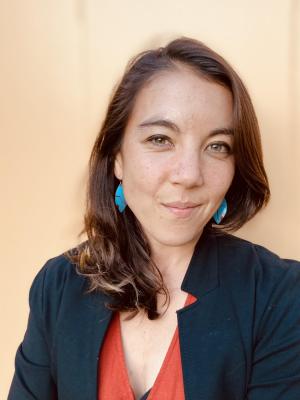Event Date:
Event Location:
- Virtual event: https://ucsb.zoom.us/j/83931849722
Event Contact:
Cora Danielson at cora@ucsb.edu
The Department of Asian American Studies proudly presents a virutal colloquium featuring UCLA Chancellor's Postdoctoral Fellow Elizabeth Hana Rubio!
Summary from Rubio's colloquium entitled "Dreaming without Progress: Undocumented Korean American Activities and the Politics of Recognititon":
Korean Americans constitute one of the fastest growing undocumented populations in the U.S. Over the past several years, many undocumented Korean American leaders have become some of the most prominent voices in the national movement to secure comprehensive immigrant rights for all. Based on five years of ethnographic research with activists across the U.S., this talk analyzes how growing disillusionment with legislative engagement has helped to formulate an emergent politics that critiques legalization as the limit concept of immigrant liberation. By outlining the contours of daily life at Woori Jip – a Korean-American-run undocumented housing collective in Chicago – I show how activists enact alternative conceptualizations of citizenship grounded in horizontal relations of communal care rather than vertical, individualized relations with the state. Ultimately, I ask whether “dreaming without progress” is possible under the conditions of liberal political modernity, in which recognition is the assumed end goal of social movement activism.
Elizabeth Hana Rubio is a UCLA Chancellor's Postdoctoral Fellow in the Institute of American Cultures and Asian American Studies Center. In June 2021, she received her PhD in Cultural Anthropology at UC Irvine. Based on five years of ethnographic research with undocumented Korean American organizers in Southern California, Washington D.C., and Chicago, her current book manuscript examines the fraught politics of multiracial coalition-building in immigrant justice spaces and the complexities of enacting immigrant justice through an abolitionist lens. Elizabeth builds on her work as a community organizer to conduct research that responds to emergent questions and practices in social justice spaces. You can find her work published in Amerasia Journal, The Journal for the Anthropology of North America, the Los Angeles Review of Books, and other mediums. Outside of her academic work, she engages in mutual aid work with unhoused neighbors in Orange and Los Angeles Counties and organizes with undocumented Korean American communities.

